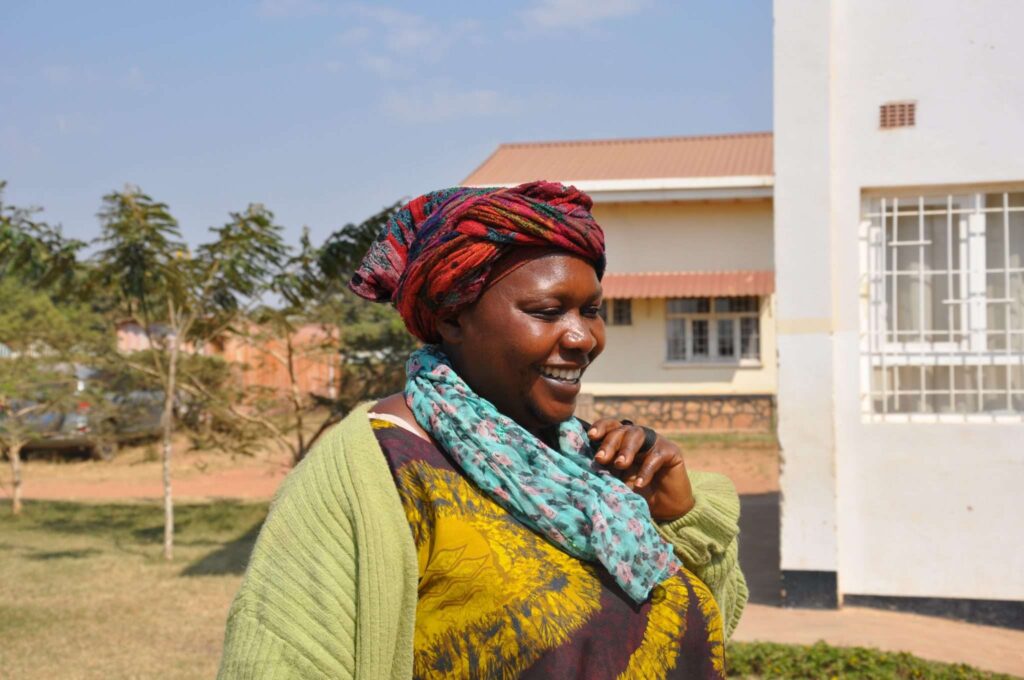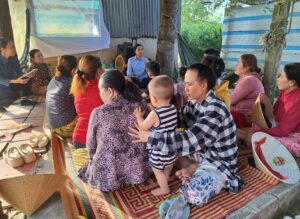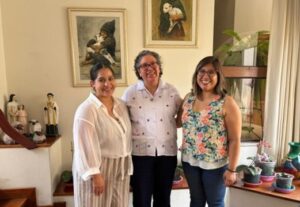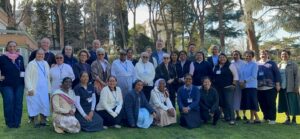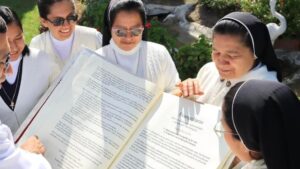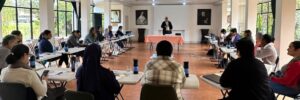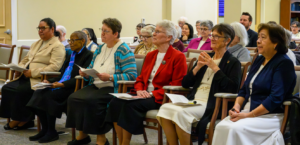Par la Fondation Bon Pasteur International
Dans l’est de la République démocratique du Congo, la population est prise entre deux feux depuis des mois par un conflit armé dévastateur. Au premier semestre 2025, plus d’un demi-million de personnes ont été contraintes de fuir face à la violence et à l’instabilité généralisées. Originaire de Goma, capitale du Nord-Kivu, dans l’est de la RDC, Neema, 50 ans, tenait une boutique de poisson et de boissons. Son commerce lui permettait de subvenir aux besoins de ses six enfants et de vivre confortablement.

Mais en janvier 2025, sa vie a basculé lorsque la violence a repris. Un jour, alors qu’elle roulait derrière la voiture du gouverneur à la périphérie de la ville, elle a été témoin de son assassinat. Le chaos a éclaté : coups de feu, panique et violence généralisée. Elle a compris qu’il était temps de fuir pour sauver sa vie et celle de ses enfants. Poussée par ses fils, Neema a quitté la ville avec ses deux plus jeunes filles, particulièrement exposées aux menaces de violences sexuelles qui se sont généralisées pendant le conflit.
Elle a fui son domicile, n’emportant presque rien – seulement ses vêtements et 100 dollars. Elle s'est lancée dans un voyage périlleux, embarquant sur un bateau à destination de Bukavu, la capitale du Sud-Kivu. À Bukavu, la situation était tout aussi désastreuse. Les soldats qui se retiraient dans le sud du pays leur demandaient de l'argent en échange d'un transport, faute de quoi ils ne seraient pas autorisés à poursuivre leur route. Neema leur a tout donné. Ils ont voyagé en voiture de Bukavu à Uvira, puis en bateau d'Uvira à Kalemie. À Kalemie, Neema et d'autres familles déplacées ont campé devant l'aéroport pendant deux semaines. Les soldats ont finalement trouvé un moyen de transport, mais celui-ci ne pouvait transporter que quelques personnes, laissant derrière eux 48 personnes.
« La guerre détruit tout, brise des vies et laisse des cicatrices indélébiles aux individus et aux communautés. J'avais une maison, un commerce et un véhicule. Maintenant, je n'ai plus rien. »
Après un voyage exténuant de deux semaines, elles sont arrivées à Kolwezi grâce à des soldats qui leur ont proposé de les y emmener. Une fois arrivées à Kolwezi, un jeune vendeur ambulant les a présentées à une habitante de Goma, qui les a accueillies et les a hébergées. Neema, malade, ne voulant pas surcharger la famille de sa famille d'accueil, a demandé à être mise en contact avec une personne susceptible de l'aider. Quelques jours plus tard, elle a été Bon Pasteur Kolwezi.

Là-bas, elle a été accueillie par les sœurs pré-novices et présentée à Sœur Furaha et Sœur Yvette, qui leur ont fourni nourriture, soins médicaux et soutien psychologique. Gravement malade, Neema n'est pas encore en mesure de participer aux activités ni aux formations, mais elle bénéficie de soins et d'une assistance quotidienne. Sa fille aînée est désormais inscrite à la formation professionnelle du Bon Pasteur, tandis que la cadette est scolarisée grâce au soutien de la famille d'accueil.
« Je ne connaissais personne ici, mais j'ai été accueillie avec gentillesse », se souvient-elle.
Cependant, la situation reste difficile. Neema est confrontée à l'incertitude quant à l'avenir et aux questions de ses enfants : «Mangerons-nous encore un jour de la viande?» Elle leur conseille d'être patients, car un jour, ils se sentiront de nouveau chez eux.
Malgré ces circonstances, Neema est déterminée à retrouver son indépendance. Elle affirme avoir trouvé la paix à Kolwezi. Elle se sent en sécurité et soutenue et espère reprendre une petite entreprise comme celle qu'elle tenait à Goma.
« Si vous voyez quelqu'un fuir pour sauver sa vie, aidez-le. Être réfugié est l'une des expériences les plus difficiles que l'on puisse vivre. Je veux dire aux autres, en particulier à ceux qui arrivent à Kolwezi, de venir au Bon Pasteur. J'ai été accueillie avec amour et soutien. Même vous qui êtes encore loin, ne perdez pas espoir. »
Article et photos reproduits ici avec l'aimable autorisation de la Fondation internationale du Bon Pasteur
